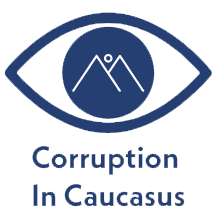
The recent corruption investigation in Azerbaijan, focused on officials within the Seaside Boulevard Department, highlights the persistence of systemic issues within the country’s governance structure. Allegations have surfaced accusing these officials of engaging in financial mismanagement, embezzling funds that were meant to enhance the popular coastal parkland area in Baku. This scandal reflects a broader pattern of corruption that has long plagued Azerbaijan’s public institutions.
In this case, the implicated officials are accused of exploiting their positions for personal financial gain, violating the trust placed in them to oversee public works. These types of activities are particularly damaging as they undermine public faith in government and delay the development of much-needed infrastructure. Not only does this hinder urban development, but it also perpetuates an atmosphere of impunity and inefficiency, making future reform efforts more challenging.
Azerbaijan, which has struggled with various levels of corruption in government, often ranks low in international corruption indices. Despite promises of reform, high-profile cases like this continue to demonstrate that many officials abuse their power for personal benefit. This investigation is just the latest in a series of publicized corruption scandals that further tarnish the reputation of Azerbaijani governance on the global stage.
The Boulevard Department plays a critical role in managing one of Baku’s most significant tourist attractions. Therefore, the misallocation of funds not only has a local impact but also affects the country’s image internationally, potentially limiting its tourism appeal and investment opportunities. Public spaces like the Seaside Boulevard are crucial to the quality of life for citizens, and their neglect due to corruption reflects poorly on public institutions’ ability to manage national resources responsibly.
Analyzing this situation, it becomes clear that Azerbaijan’s leadership faces a fundamental choice: either allow corruption to continue eroding public trust and national progress, or initiate stronger accountability mechanisms to deter such behavior in the future. For true reform to occur, it is crucial to move beyond just prosecuting individual cases of corruption; the government must establish transparent and consistent processes that make it difficult for such abuses of power to occur in the first place.
Addressing systemic corruption in Azerbaijan requires a cultural shift as well as legal reforms. Stronger checks and balances, more robust whistleblower protections, and international oversight are potential solutions to prevent future corruption. Moreover, an independent judiciary that holds powerful individuals accountable is essential in deterring further criminal activity within government ranks.
In conclusion, the ongoing investigation of the Seaside Boulevard Department officials is a necessary, albeit limited, step toward exposing and rectifying corruption in Azerbaijan. However, it is far from a solution to the pervasive issues plaguing the nation’s governance. For Azerbaijan to move forward and develop sustainably, it will need to enforce meaningful anti-corruption measures and cultivate a culture of transparency that extends beyond occasional investigations and punitive actions. The country’s future growth—both economically and socially—depends on this critical transformation.

